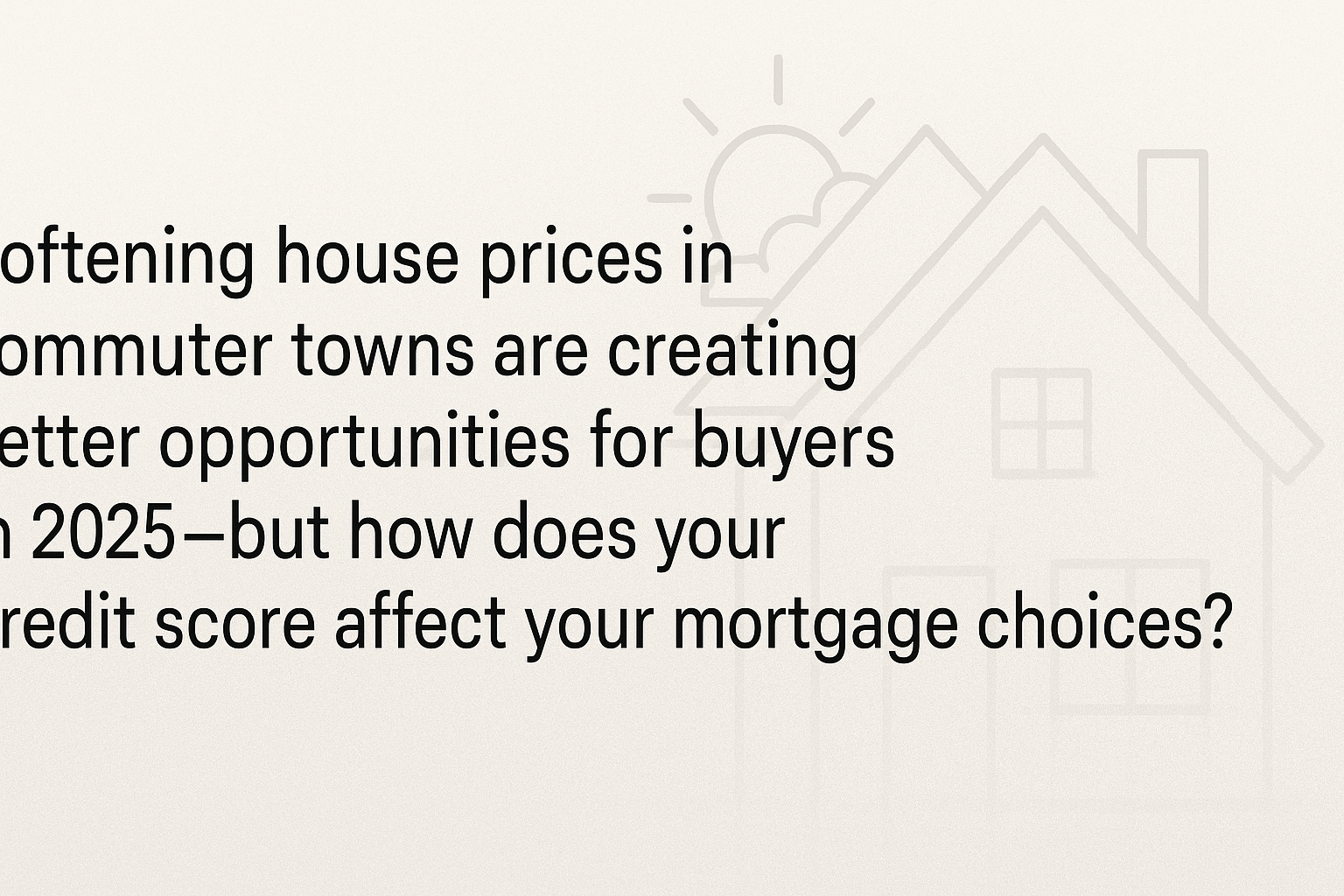As the UK property market enters a period of price adjustment, especially in commuter towns, buyers are finding new opportunities—but your credit score still plays a crucial role in how much you can borrow and how good your deal will be.
What's Included?
Why Are Commuter Towns Back in Focus?
Rising interest rates throughout 2023 and 2024 cooled house prices across the UK. Now in 2025, with a recent base rate cut and continued economic uncertainty, we’re seeing prices soften further—especially in areas just outside major cities like London, Birmingham, and Manchester.
These commuter towns (think: Luton, Slough, Basildon, or Warrington) offer:
- Lower entry prices for first-time buyers
- Good transport links to city centres
- Higher rental yields for investors
But even if prices are dipping, mortgage lenders still apply the same scrutiny when it comes to your creditworthiness.
How Does a Softer Market Affect Your Mortgage Options?
Lower house prices can work in your favour by reducing the size of deposit needed or bringing homes back within your affordability range. However, this doesn’t automatically mean easier mortgage approval.
Lenders still rely heavily on your:
- Credit score
- Income stability
- Debt-to-income ratio
- Deposit size
Example:
If a property falls from £300,000 to £270,000, a 10% deposit drops from £30,000 to £27,000. That’s a win for buyers—but if your credit score is low, your lender may still demand a higher deposit or charge a higher interest rate.
Commuter Town vs. City Centre: Mortgage & Credit Score Comparison
| Factor | Commuter Town (e.g., Luton) | City Centre (e.g., London) |
|---|---|---|
| Average Property Price | £270,000 | £500,000+ |
| Typical First-Time Buyer LTV | 90% | 85% or less |
| Minimum Credit Score Needed | Fair to Good (600–700+) | Good to Excellent (700–800+) |
| Interest Rate (fixed 5yr avg) | 4.5%–5.2% | 4.2%–4.9% |
Lenders may be more flexible in commuter towns where homes are cheaper, but they still want reassurance—through your credit score—that you’re a safe bet.
How to Strengthen Your Credit Before Buying
- Check your credit report
Ensure there are no errors or outdated negative records. Use tools like ClearScore, Credit Karma, or CheckMyFile. - Lower your credit utilisation
If you have credit cards, keep balances under 30% of your limit. - Avoid multiple hard credit searches
Use soft search tools to check mortgage eligibility without impacting your score. - Register to vote at your current address
This simple step improves your credit profile and address history. - Use a credit builder card or account
These products are designed to show consistent, positive behaviour to credit bureaus.
Final Thoughts
Falling house prices in commuter towns are opening doors for buyers—but only those with strong financial foundations will get the best deals. Before applying for a mortgage, take the time to boost your credit score and understand what lenders are looking for.
Your dream home might not be far—just make sure your credit score is ready to take the journey with you.






